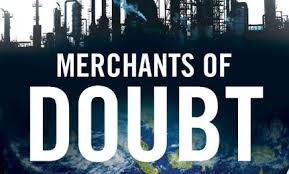Politics
Climate Gag Rules and the First Amendment
Are climate gag rules constitutional? Sometimes yes, sometimes no.
There have been recent reports about state agencies that forbid employees from discussing climate change. Since this is obviously a restriction on speech, it’s natural to wonder what the First Amendment has to say on the subject. The answer depends in large part on the kind of employee speech at issue. Let’s being with a ban …
Continue reading “Climate Gag Rules and the First Amendment”
CONTINUE READINGThe Case Against Sulking
States will only lose out if they refuse to cooperate with the Clean Power Plan.
Mitch McConnell has urged states to refuse to submit plans if the Clean Power Plan is upheld by the Court. He has been accused of inciting lawless behavior on the part of state governments. Let me come to his defense on this. (How often do I get to do that??) The states are under no legal obligation …
Continue reading “The Case Against Sulking”
CONTINUE READINGAre California’s New Mandatory Water Restrictions an April Fool’s Day Joke?
It’s Time to Pressure Alfalfa Growers to Stop Wasting Water
Now that Governor Brown has ordered the state’s first mandatory water restrictions, it’s important to keep one number in mind: one-sixth. That is the amount of California water that goes to one crop: alfalfa. It’s a pretty low value crop. And it is not even for human consumption directly; it is used for cattle feed. It …
Continue reading “Are California’s New Mandatory Water Restrictions an April Fool’s Day Joke?”
CONTINUE READINGShould the WTO Run International Climate Policy?
William Nordhaus’ New Paper Implies That It Should
Last Thursday, Ethan explained the difficulties with attempting to craft a new international climate treaty, and suggested biting off more snackable chunks to work on the problem piece-by-piece (a recommendation I have also made). Now, hot off the presses, the new American Economic Review features a lead article by William Nordhaus suggesting climate clubs as …
Continue reading “Should the WTO Run International Climate Policy?”
CONTINUE READINGNews from a Warming World
Coal versus wind power; China’s air; poll results; Ted Cruz; arctic ice.
There’s been a lot of interesting environmental news recently, much of which seems to have gotten little notice. The topics range from U.S. wind power (growing) to U.S. coal power and Arctic sea ice (both shrinking), with a bit of Ted Cruz to spice things up. Here’s the round-up: Out with coal, in with wind. The …
Continue reading “News from a Warming World”
CONTINUE READINGShut Up, Texas
Environmental Factors Smack Down Another Right-Wing Meme
If like me you are tired of Texans gloating about their supposed “miracle,” today’s post from Kevin Drum brings some good news: For years, business lobbyists complained about what they derided as “job killer” laws that drive employers out of California. Rival state governors, notably former Texas Gov. Rick Perry, made highly publicized visits to …
Continue reading “Shut Up, Texas”
CONTINUE READINGThe Unreasonable Risk of TSCA Reform
Caught Between a Rock and a Hard Place
The Frank R. Lautenberg Chemical Safety for the 21st Century Act is no doubt generating significant conflict, including claims of undue industry influence, competing bills from prominent members of the same party, consternation among states, and divisions among health and environmental groups. And it may also be the closest we have gotten to TSCA reform—ever. …
Continue reading “The Unreasonable Risk of TSCA Reform”
CONTINUE READINGCould California Supreme Court Review Of San Diego’s Transportation Plan Soon Be Moot?
Legislature may act this year to enshrine the 2050 greenhouse gas goals at issue in the case
As Rick blogged last week, the California Supreme Court on Wednesday granted review of San Diego’s weak transportation plan. I detail the history here, but basically San Diego’s regional transportation agency delivered a plan in 2011 that was supposed to comply with SB 375 (Steinberg, 2008), a landmark law linking transportation spending with long-term greenhouse …
CONTINUE READINGThe Anticommunist Origins of Climate Denial
How Cold Warriors Wind Up Heating the Planet
The other night, my wife and I saw Merchants of Doubt, Robert Kenner’s new film about the climate denial industry. I thought it was excellent. I was surprised by the high production values and the way in which it did not feel like a documentary, at least until the last 15-20 minutes or so. (Then …
Continue reading “The Anticommunist Origins of Climate Denial”
CONTINUE READINGWhy Did Conservatives Support Saving Mono Lake?
The Skillful — and Lucky — Alliance Between Locals and Environmentalists
A little more than a year ago, I asked how the Mono Lake Campaign succeeded. I had previously suggested that a principal cause of the Mono Lake Committee’s success was the enemy: the arrogant, bullying, and reactionary Los Angeles Department of Water and Power. Everyone in the state “knew” that Los Angeles had “stolen” its …
Continue reading “Why Did Conservatives Support Saving Mono Lake?”
CONTINUE READING










